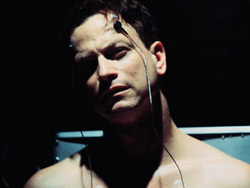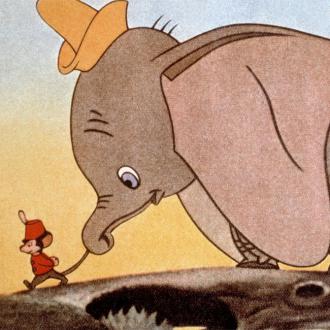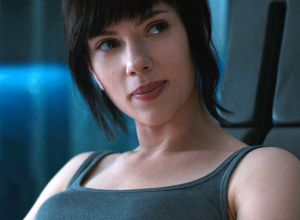Ghost In The Shell Review
This sci-fi thriller is so visually stunning that it deserves to be mentioned in the same breath as The Matrix or Blade Runner, two films it resembles in various ways, even if it lacks their resonance. Director Rupert Sanders (Snow White and the Huntsman) pulls out all the stops, expertly deploying an eclectic cast and a continual stream of eye-popping visual effects. This helps make up for the surprisingly thin approach to the story's deeper themes.

It's set in near-future Japan, where Major (Scarlett Johansson) has her brain transplanted into a robotic body after an accident. Weaponised by the Hanka corporate boss Cutter (Peter Ferdinando), she is assigned to work undercover with local police chief Aramaki ('Beat' Takeshi Kitano) and a team that includes muscly sidekick Batou (Pilou Asbaek) and reparative Dr Ouelet (Juliette Binoche). Major's current case has her on a collision course with a mastermind terrorist named Kuze (Michael Carmen Pitt), who is attacking Hanka executives one by one. As she tracks him down, she is noticing strange glitches in her programming, little visions of what might be her past. But these are oddly unrelated to her memories, which makes her wonder who she really was before she became a machine.
The script makes it painfully clear that the title refers to Major's soul in her mechanical body, as if it needed explaining. And there are other elements of the dialog that seem dumbed down for the mainstream, including the way the film sidesteps the big questions it raises about free will, militarised culture and corporate greed. By neglecting these elements of the story, the film wows our eyes and tantalises our emotions, but never gets under our skin. Johansson is terrific at these sort of roles (see also Lucy), and her expressive eyes bring some moving subtext to her scenes with Binoche and Pitt. Meanwhile, Kitano nearly steals the show as the cool old-school master.
Continue reading: Ghost In The Shell Review





